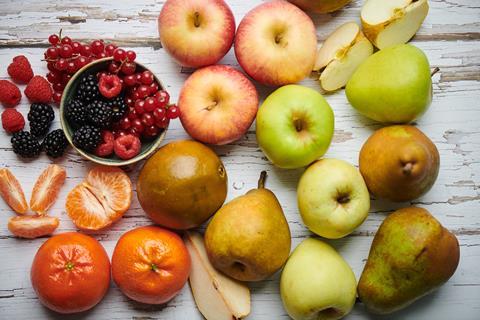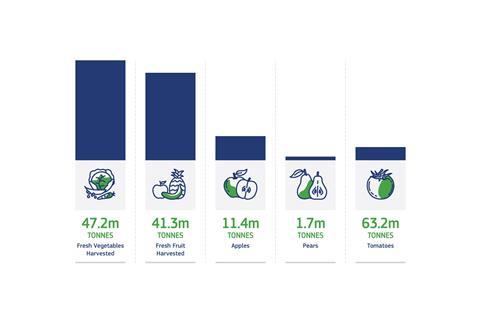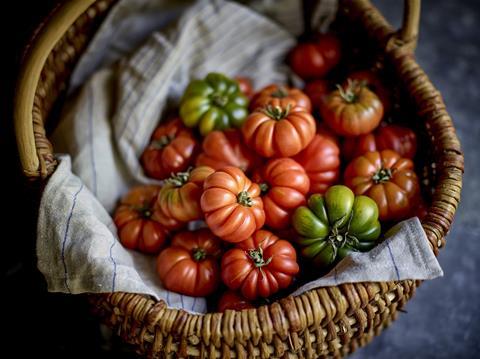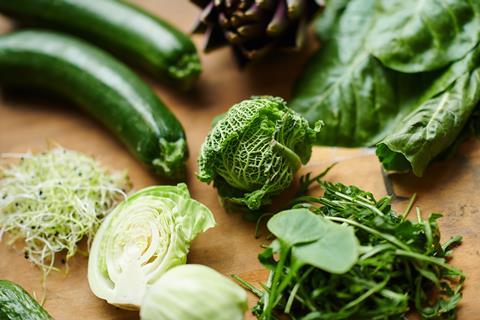Advertorial: Veryan Bliss of the EU’s ‘More Than Only Food & Drink’ campaign explores the quality, sustainability and unique characteristics of various produce grown in Europe and imported to the UK

The landscape, scale and climate of the European Union provide a wealth of excellent fruit and vegetables throughout the year, making it a vital partner in supporting UK consumer demand for high quality fresh produce.
According to Veryan Bliss, director of Food Intelligence and advisor to the ‘More Than Only Food & Drink’ campaign, “The EU’s diverse range of microclimates, from the sun-soaked Mediterranean to the cooler northern regions, plays a crucial role in supporting the year-round production of fresh produce.
“This geographical diversity ensures a steady supply of seasonal produce, often complementing the UK’s own growing patterns. When certain crops are out of season in the UK, EU producers support the offer, ensuring that UK retailers can offer a consistent, high-quality selection to consumers throughout the year.”
The quality and safety of EU fruit and vegetable production underpin each other and are the result of stringent safety regulations and systematic controls. The EU has the world’s most rigorous monitoring system to keep contaminants away from its food.
Under EU Plant Health Law, all plants, unless specifically excluded, need to have phytosanitary certifications. High-risk plants cannot be brought into the region until a thorough risk assessment has been completed. Member states also need to implement improved safeguards and prominent awareness campaigns in the event that priority pests are found on their soil.
When it comes to quality, Bliss praises the “exceptionally talented producers in the EU”. She says she is “a particular fan of the highly flavoured cherry vine tomatoes from the hi-tech structures in the south of Spain during the winter, and fresh San Marzano tomatoes (Pomodoro San Marzano dell’Agro Sarnese-Nocerino PDO) from Italy.”

Steps towards sustainable and organic farming in the EU
Spanish and Italian tomatoes are highly prized, with Spain exporting 682,000 tonnes in 2023. And with increasing evidence of less rainfall in many parts of Europe, water management is more vital than ever.
To alleviate the burden of abstractions on the limited water available, the EU has set new regulations for the safe reuse of waste water in agricultural irrigation. A circular approach to water usage protects biodiversity and facilitates adaptation to climate change and attaining zero pollution.
The Water Reuse Regulation (WRR) will help build the trust of consumers and producers in the safety of this essential water-saving process.
According to Bliss, “several EU businesses are setting remarkable examples in sustainability through innovative practices aimed at reducing environmental impact and promoting efficiency.”
She adds: “Many protected crop farms have implemented closed-loop irrigation systems that ensure every drop of water not utilised by crops is recycled and reused. This is complemented by a shift from broad-scale irrigation to drip and trickle irrigation in many fields and orchard crops, which delivers water directly to the plants, significantly minimising waste.
“Renewable energy sources are also making significant strides in agricultural practices. Solar power is increasingly utilised to run packing houses and irrigation systems, while wind farms are being integrated into agricultural operations to provide sustainable energy solutions.
“Moreover, field robots powered by solar and wind energy are being deployed, reducing soil compaction and structural damage while increasing efficiency in field operations.”

The cream of the crop
Bliss continues: “There are many exceptional examples of fruit and vegetables from the EU and the UK market is exceptionally talented when it comes to sourcing unique and interesting products and varieties.
“The Protected Geographical Indication (PGI) and Protected Designation of Origin (PDO) schemes also support buyers. These schemes not only preserve the traditions and agricultural practices of specific regions, but also promote sustainability and biodiversity.”
There are almost 400 EU fruit and vegetable products registered as PDO and PGI, all which owe their distinctive characteristics to the climate, soil, landscape and production methods. Products covered by the schemes are wide-ranging and include Alho da Graciosa PGI (garlic) from Portugal, Tomaten von der Insel Reichenau PGI (tomatoes) from Germany and Figue de Solliès PDO (figs) from France.
As part of its sustainability strategy, the EU aims to dedicate 25 per cent of agricultural land to organic by 2030. The ambition is already achieving results, with the EU’s organic farming area increasing by 5 per cent in 2022.
An essential scheme in the EU’s drive to become more sustainable is EU Organic. To be labelled EU organic requires an absolute prohibition of GMOs, and strict limitations on the use of chemical fertilisers and pesticides. A product can only carry this label if its ingredients are at least 95 per cent organically farmed and if the other five per cent meet additional strict conditions.

A more than reliable fresh produce partner
The EU doesn’t only offer an abundant and varied range of fruit and vegetables; it also assures authenticity, safety, quality, and world-leading sustainability practices.
Furthermore, the seamless alignment between EU and UK growing seasons allows for a reliable supply of fresh, seasonal produce, enhancing the retail offering and giving consumers access to a diverse range of fruits and vegetables regardless of the time of year.
Click here for more information about the EU’s ‘More Than Only Food and Drink’ campaign.
Did you know?
Rodakina Naoussas PDO from Greece are peaches grown in the Greek region of Central Macedonia. While originally from China, the excellent weather and soil conditions combined with careful cultivation made them adapt quickly to the Mediterranean.
The peaches are only harvested when ripe and immediately inspected and packed to retain their freshness. Due to their rich aroma and sweet taste, they are highly sought after by consumers both in Greece and beyond.
Meanwhile, De Meerlander PGI from the Netherlands is an early-ripening potato, grown in the lowlands surrounded by the Ringvaart canal. It is highly resistant to disease. The potato has an oval, flattened shape, pale yellow skin and flesh, and shallow eyes. The taste is velvety, mild, dry, and slightly salty, but full-flavoured.



